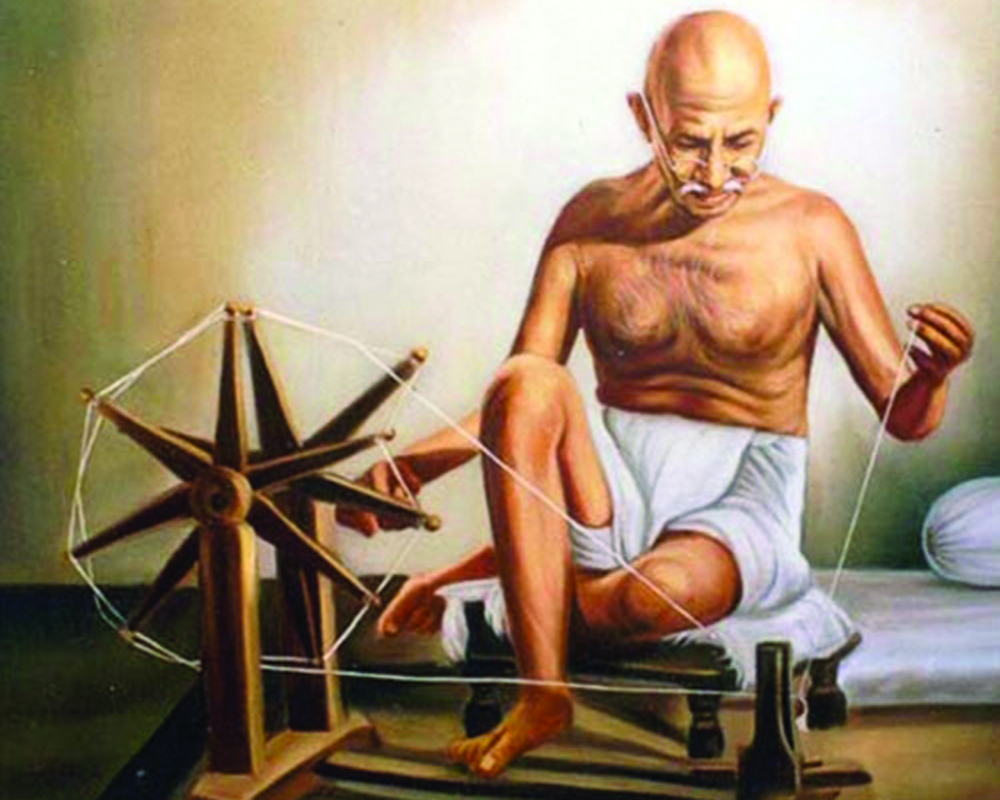The recent farmers’ protest was based on his principles
Mahatma Gandhi is certainly revered even today, in India and abroad. Described as “half-naked fakir” by former British Prime Minister Winston Churchill, the frail-looking, bespectacled, dhoti-clad Gandhi succeeded in uniting Indians against the colonial powers to achieve India’s freedom. His strategy rested on people joining him in a non-violent struggle for independence from colonialism. The crux of his movement drew strength from people and subsequently forced the British government to acknowledge its power marked by India gaining freedom. With a law degree from London (1891) and roughly two decades’ experience in South Africa (1893-1914) as a lawyer and civil rights’ activist when he donned western attire, he returned to India in 1915. As he joined politics and familiarized himself with Indian issues back home, he opted for the Indian dress, the then popular dhoti. He began using the loin cloth from 1921 to identify himself with poor Indians. Of course, apart from being a key part of his communication strategy, this was opted for probably to bridge any communication gap between him and poor Indians. Undeniably, Gandhi did not only identify himself with the majority but also reached out to them -as one of them- and won their support. The seeds of people’s power he sowed then find resonance even today. For instance, the recent farmers’ protest is a classic example of people’s participation in a non-violent agitation compelled the authorities to take note of their grievances. The three anti-farm laws, against which farmers protested, may be viewed as representing the obvious apathy, lack of concern and perhaps ignorance of the powers that be about issues concerning farmers. If state elections in Punjab were not around the corner, the Indian government may not have withdrawn anti-farm bills.
Farmers from Punjab were most strongly represented in their protest. There is an apprehension that after elections the central government may impose similar bills again. Not surprisingly, farmers have asserted that their fight is not over yet. The chain binding people to protest together and/or support a leader may be viewed as symbolic of genuine democracy. Gandhi moved with his walking stick with the masses walking with him. The farmers’ protest would not have probably gained attention and hit national as well as international headlines if it had not lasted for a long period with thousands participating in it. Gandhi is still remembered but hardly any importance seems to be given to Gandhism. Exercise of power appears more strongly guided by what the “moneyed” minority desires, even at the cost of economic crisis for the majority. Besides, leaders appear more concerned about their “success” being marked by their own images spread around extensively on boards, posters, photographs, even their masks donned by others and so forth. For how long will the masses allow themselves to be guided by their leaders who continue to nurture their egos, serve personal interest, and their quest for their own prosperity outweighs their concern for the people? Yes, money can be and is used to purchase necessary political support. But when money strikes through inflation, etc., the aggrieved may be expected to give greater importance primarily to those united with them in their grievances. Here is where masked leadership bears little relevance against people’s voice. And when democracy echoes through people’s protests and movements, chances of it leading to an impactful conclusion exist. Sadly, even elected leaders tend to notice these grievances only when they sense the need of electoral support of the aggrieved. It is time democratically elected leaders threw away their masks, stepped out of their ivory towers, moved beyond their own shadows and gave a little more importance to Gandhism.
(The writer is a senior journalist. The views expressed are personal.)


























